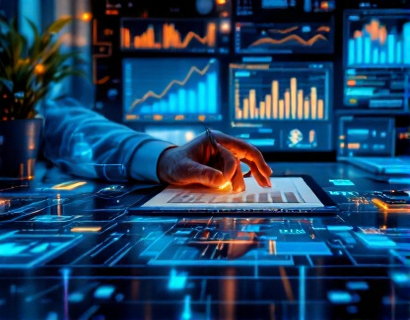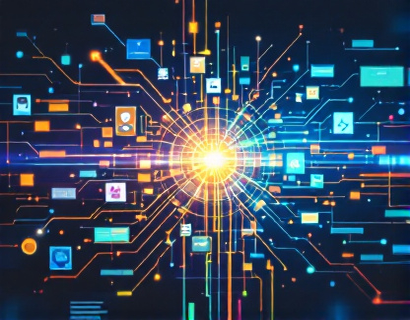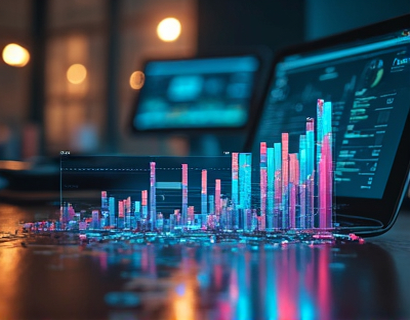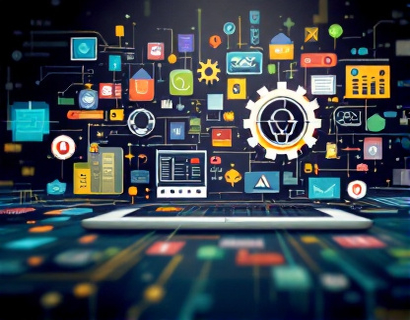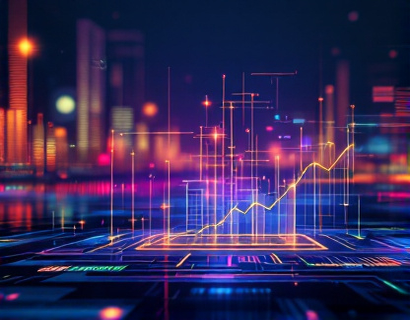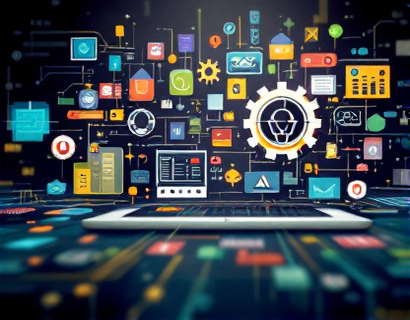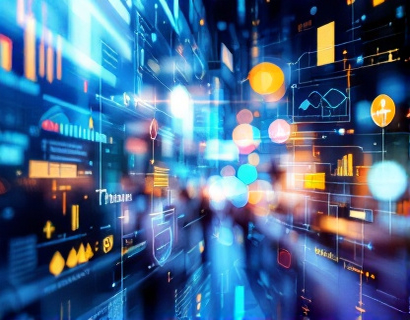Revolutionizing Finance and Technology: The Synergy of AI and Cryptocurrency
The intersection of artificial intelligence (AI) and cryptocurrency is giving birth to a new era in finance and technology. This fusion is not just an evolution but a revolution, promising to redefine how we perceive, interact with, and benefit from digital assets and financial services. As we delve into this transformative landscape, it's essential to understand the individual roles of AI and cryptocurrency before exploring their combined potential.
Understanding AI in Finance
Artificial intelligence has been a game-changer across various industries, and finance is no exception. AI technologies, including machine learning, natural language processing, and predictive analytics, are being harnessed to enhance efficiency, reduce costs, and improve decision-making processes. In the context of finance, AI is used for risk management, fraud detection, algorithmic trading, and customer service through chatbots and virtual assistants.
One of the most significant impacts of AI in finance is its ability to process and analyze vast amounts of data quickly and accurately. This capability allows financial institutions to gain deeper insights into market trends, consumer behavior, and operational efficiencies. For instance, AI-driven algorithms can predict stock market movements with a higher degree of accuracy, helping investors make informed decisions. Similarly, AI can detect fraudulent transactions in real-time, significantly reducing financial losses and enhancing security.
Cryptocurrency: A New Paradigm in Digital Finance
Cryptocurrency, on the other hand, represents a decentralized and digital form of currency that operates on blockchain technology. Bitcoin, the first and most well-known cryptocurrency, was introduced in 2009, but the concept has since expanded to include thousands of altcoins, each with unique features and use cases. The decentralized nature of cryptocurrencies eliminates the need for intermediaries, making transactions faster, cheaper, and more secure.
Blockchain, the underlying technology of cryptocurrencies, ensures transparency and immutability. Every transaction is recorded on a public ledger, which is distributed across a network of computers. This decentralized ledger system makes it nearly impossible to alter or manipulate transaction records, thereby enhancing trust and reducing the risk of fraud.
AI and Cryptocurrency: A Perfect Synergy
The combination of AI and cryptocurrency is creating innovative solutions that are reshaping the financial landscape. Here are some key areas where this synergy is making a significant impact:
Enhanced Trading Strategies
AI algorithms can analyze vast amounts of market data, including historical prices, trading volumes, and news sentiment, to identify patterns and predict future trends. This capability is invaluable in cryptocurrency trading, where market volatility is high and opportunities for profit are abundant. AI-driven trading bots can execute trades at optimal times, maximizing returns and minimizing risks. These bots can operate 24/7, providing a competitive edge over human traders who are limited by time zones and fatigue.
Moreover, AI can help in portfolio management by dynamically adjusting asset allocations based on real-time market conditions. This adaptive approach ensures that investments remain optimized, even in rapidly changing markets.
Improved Security and Fraud Detection
Security is a paramount concern in the cryptocurrency space, given the high value of digital assets and the potential for cyber attacks. AI technologies can significantly enhance security measures by detecting and preventing fraudulent activities. Machine learning models can analyze transaction patterns and identify anomalies that may indicate fraudulent behavior. For example, AI can detect unusual trading patterns, such as sudden large withdrawals or suspicious transfers, and alert system administrators to take preventive actions.
Additionally, AI can improve the security of blockchain networks by enhancing consensus mechanisms. Traditional consensus algorithms like Proof of Work (PoW) are energy-intensive and vulnerable to attacks. AI can help develop more efficient and secure consensus algorithms, such as Proof of Stake (PoS) variants, by optimizing the validation process and reducing the risk of malicious activities.
Personalized User Experiences
AI can also enhance the user experience in cryptocurrency platforms by providing personalized services. Chatbots powered by natural language processing can offer 24/7 customer support, answering queries and guiding users through complex processes. These chatbots can understand natural language, making interactions more intuitive and user-friendly.
Furthermore, AI can analyze user behavior and preferences to recommend tailored financial products and services. For instance, a cryptocurrency exchange can use AI to suggest suitable investment strategies based on a user's trading history and risk tolerance. This personalized approach not only improves user satisfaction but also increases platform engagement and loyalty.
Smart Contracts and DeFi
Smart contracts, self-executing contracts with the terms directly written into code, are a cornerstone of decentralized finance (DeFi). AI can enhance the functionality and reliability of smart contracts by ensuring they operate as intended and detecting potential vulnerabilities. Machine learning algorithms can analyze smart contract code to identify patterns that may lead to bugs or security breaches, allowing developers to address these issues proactively.
DeFi platforms, which offer a range of financial services such as lending, borrowing, and yield farming, can benefit from AI by optimizing liquidity management and risk assessment. AI can predict market conditions and adjust parameters in real-time to maximize returns and minimize losses. This dynamic optimization is crucial in the highly volatile DeFi space, where traditional fixed strategies may not suffice.
Challenges and Considerations
While the integration of AI and cryptocurrency offers numerous benefits, it also presents several challenges that need to be addressed:
Regulatory Uncertainty
The regulatory landscape for cryptocurrencies is still evolving, and the introduction of AI adds another layer of complexity. Regulators are grappling with how to oversee AI-driven financial services, ensuring they comply with existing laws and protect consumers. Clear and consistent regulations are essential to foster innovation while maintaining market integrity.
Data Privacy and Ethical Concerns
AI relies heavily on data, and the use of personal data in financial applications raises significant privacy concerns. Ensuring that user data is handled ethically and securely is crucial. Implementing robust data protection measures and transparent data usage policies can help build trust and mitigate risks.
Technical Complexity
The technical integration of AI and cryptocurrency requires specialized knowledge and expertise. Developing and maintaining AI systems that can accurately analyze financial data and operate within the constraints of blockchain technology is a complex task. Collaboration between AI experts and blockchain developers is essential to overcome these technical challenges.
Future Prospects
The future of AI and cryptocurrency is bright, with numerous opportunities for innovation and growth. As technology advances, we can expect to see more sophisticated AI applications in the financial sector, further enhancing efficiency, security, and user experiences.
One promising area is the development of AI-driven financial advisors that can provide personalized investment advice based on a comprehensive analysis of market data and individual preferences. These advisors can democratize access to professional financial guidance, making it more accessible and affordable for a broader audience.
Another exciting development is the integration of AI with other emerging technologies, such as the Internet of Things (IoT) and 5G networks. This convergence can lead to the creation of smart financial ecosystems where devices and systems interact seamlessly, enabling real-time financial transactions and insights.
In conclusion, the fusion of AI and cryptocurrency is not just a trend but a fundamental shift in how we approach finance and technology. By leveraging the strengths of both domains, we can create more efficient, secure, and user-friendly financial solutions. As we continue to explore this exciting frontier, the potential for innovation and transformation is limitless.








